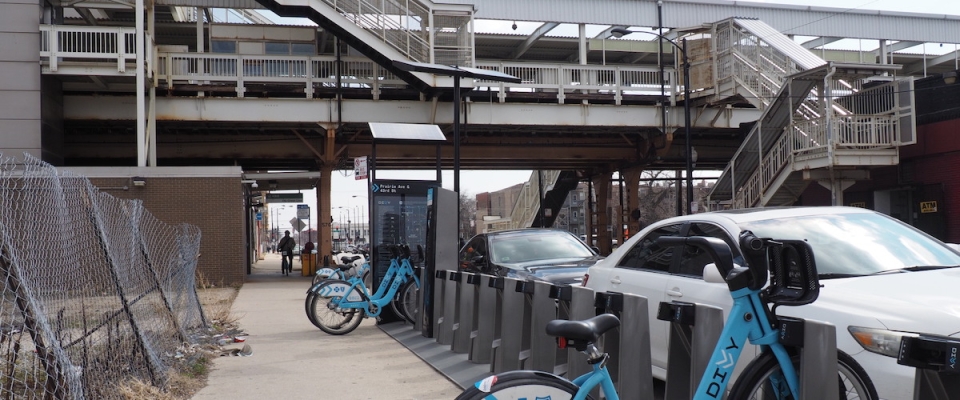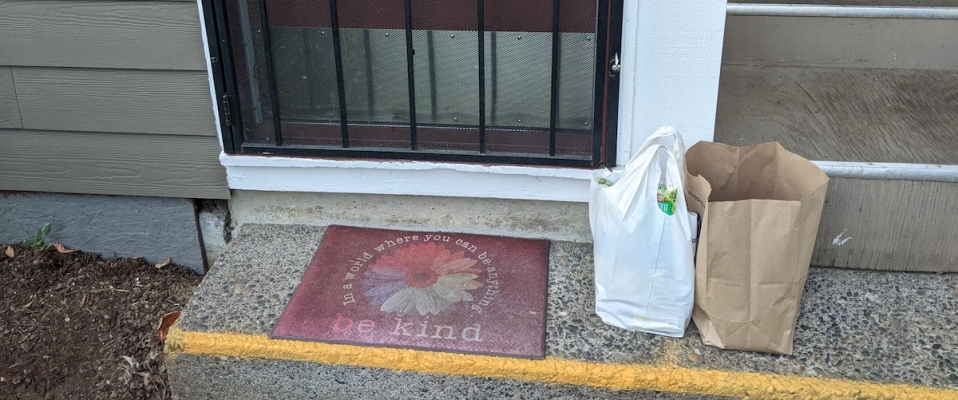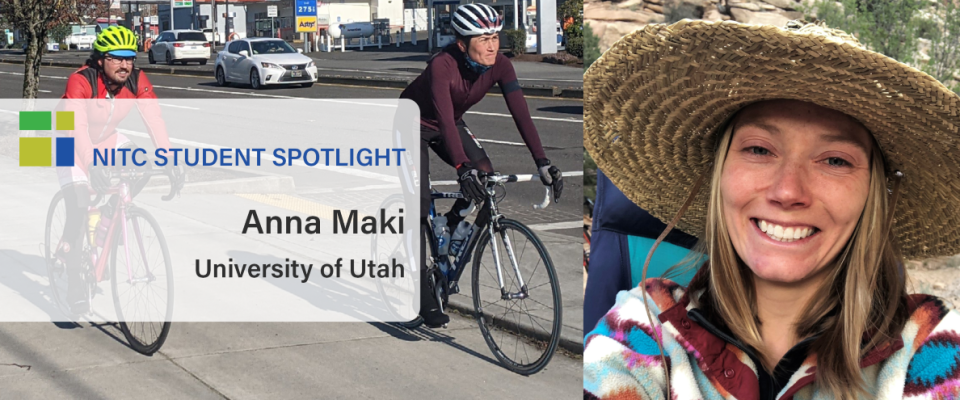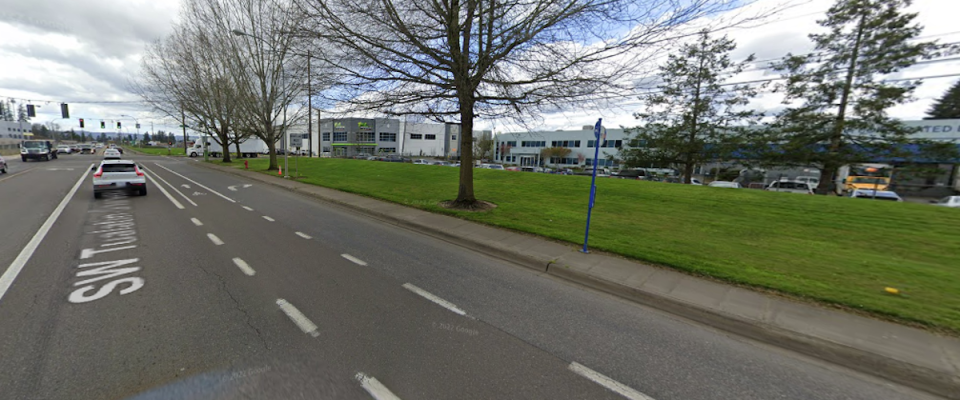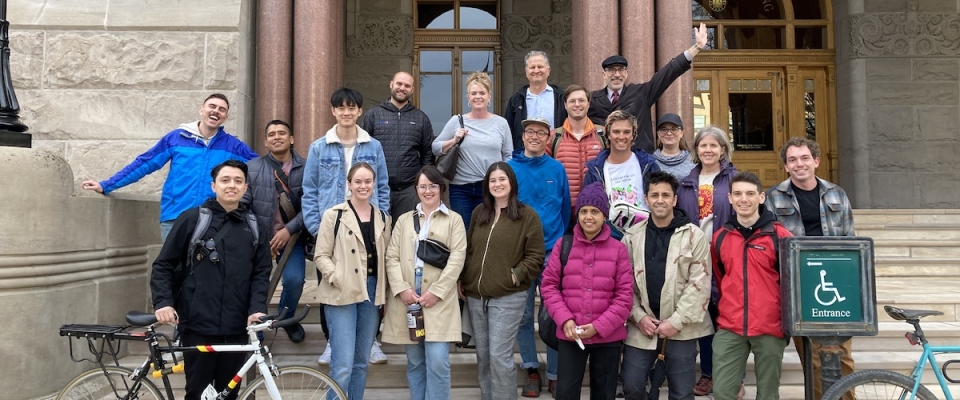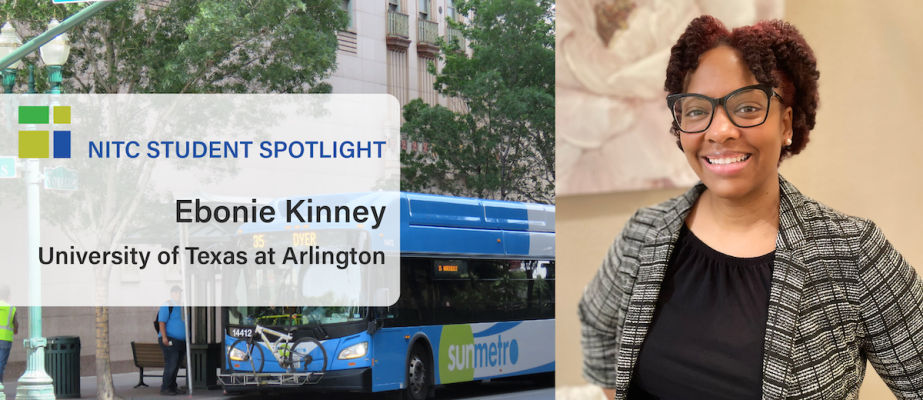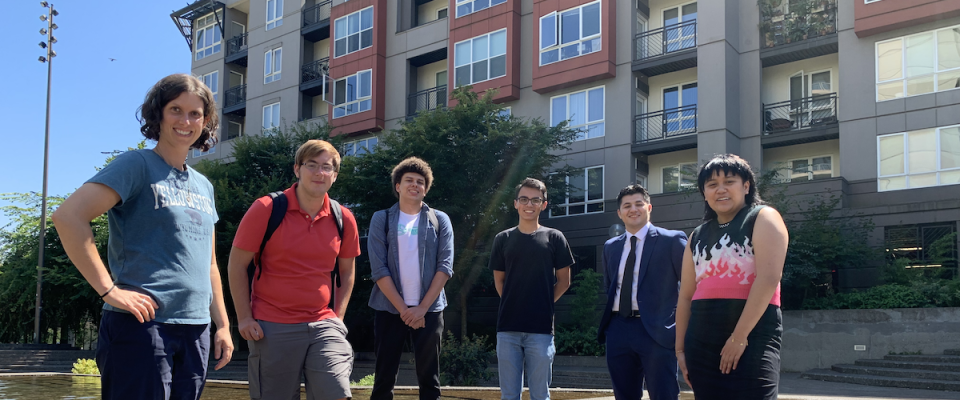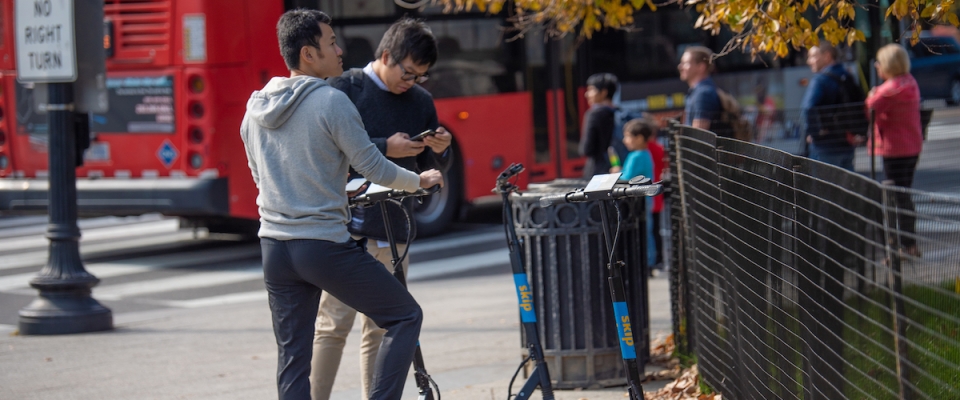Researchers Jennifer Dill, Jiahui Ma, Nathan McNeil, Joseph Broach and John MacArthur of Portland State University have published a new article in the November 2022 issue of Transportation Part D: Transport and Environment. The open-access article, "Factors influencing bike share among underserved populations: Evidence from three U.S. cities," examines bike share use and interest among lower-income residents and people of color in New York, Chicago, and Philadelphia.
There is evidence that lower-income and people of color (POC) in the U.S. do not use bike share as much as higher-income and white people. Using data from residents living near bike share stations in New York, Chicago, and Philadelphia, the paper examines reasons for these disparities. Researchers looked at many factors that might explain bike share use and interest in lower-income, racially diverse, traditionally underserved neighborhoods. They focused on residents who live near bike share stations, so that proximity would not be a barrier.
A few key findings:
- People who are not members, but are interested in using bike share, including POC, are motivated to use bike share for fun, recreation, and social reasons (as opposed to utility).
- Knowledge of bike share and receiving information from interactive sources (for example,...
When the COVID-19 pandemic first swept across North America and led to emergency shutdowns during the spring of 2020, the way people acquired food and household necessities was dramatically impacted. As stay-at-home orders minimized personal travel, transit services were reduced and many stores and restaurants either closed or modified their operations.
Some of the gaps were filled by online retailers and delivery services. However, access to goods and services varied substantially depending on people's age, income level, and ability.
A new multi-university study funded by the National Institute for Transportation and Communities (NITC), the U.S. DOT-funded university transportation headquartered at Portland State University, and the National Science Foundation (NSF) captured how households responded as local, state, and federal governments imposed and lifted restrictions, brick-and-mortar establishments closed and reopened, and e-commerce and delivery services adjusted to the changing conditions.
The findings of this research are critical for emergency planning, but also for understanding the ever-changing mechanisms used to access retail and service opportunities (whether in person or online). The research identifies opportunities for future interventions to remedy barriers to accessing food, which will...
Read moreAnna Maki is a second-year masters student in the City and Metropolitan Planning department at the University of Utah. She currently works as a graduate research assistant for the university, and as a transit community outreach and marketing intern at Park City Municipal Corporation. Anna is serving as president of Point B, UU's student transportation group, for the 2022/23 academic year, and has also worked as an active transportation intern for UU's sustainability office. She earned her BS in environmental studies from Utah State.
Tell us about yourself?
I moved from Boise, Idaho to Utah in 2013 and have lived, and adventured, in Salt Lake City for the past five years. I’m currently in my second year of the Metropolitan Planning (MCMP) program and am working as a research assistant creating a walkability audit with an instructional module to be taught in the U’s classrooms. I’ll also be collaborating with the Wasatch Front Regional Council on conducting a walkability and urban design audit in South Salt Lake.
What (or who) has influenced your career path in transportation?
I grew up with great access to the outdoors, which generated an interest in sustainability, accessibility, and bicycling. This in turn led me to an active transportation internship with the University of Utah’...
Read moreTravel time reliability – or the consistency and dependability of travel times from day to day, and at different times of day – is a key metric that significantly affects people’s travel behavior. Since businesses rely heavily on transportation systems, an unreliable transportation network can also impact the economic competitiveness of urban areas. As such, reliable travel times are important for transportation agencies to promote economic stability within a community. Having accurate methods to evaluate reliability is important for both transportation practitioners and researchers.
A new report from Portland State University offers an improved method for determining the confidence interval of travel time reliability metrics. Researchers Avinash Unnikrishnan, Subhash Kochar and Miguel Figliozzi of PSU’s Maseeh College of Engineering and Computer Science used a highway corridor in Portland, Oregon as a case study to evaluate their method, and found that it compared favorably with other methods of evaluating the confidence interval of travel time reliability metrics.
Read more"Traffic engineers can apply this method to come up with a range of estimates for the unknown true travel time reliability metric. The travel time reliability metrics calculated by traffic engineers and transportation planners will have variability due to factors such as road...
How can community members become more engaged in transportation decision making?
Individuals and groups can learn to effect powerful change, but success requires some familiarity with how civic processes work. Community Transportation Academies, or CTAs, provide a basic technical understanding of how a city or region’s transportation system operates, along with the decision makers and decision-making processes that determine how the system is shaped.
Supported by the National Institute for Transportation and Communities (NITC), the new Wasatch Transportation Academy (WTA) at the University of Utah was piloted in 2022 in the Salt Lake City region. The research team developed a course vision, topics, and logistics for the WTA by interviewing stakeholders in the Utah Governor’s Office of Planning and Budget, the Utah Department of Transportation, the Utah Transit Authority, Salt Lake County, Salt Lake City, and the Wasatch Front Regional Council. Led by Nathan McNeil of Portland State University and Keith Bartholomew of the University of Utah, the WTA used the established Portland Traffic and Transportation class in Portland, Oregon as a framework.
...
Read moreResearchers Chandler Smith, Orhon Myadar, Nicole Iroz-Elardo, Maia Ingram and Arlie Adkins of the University of Arizona have published a journal article in the July 2022 issue of the Journal of Transport Geography.
The article, "Making of home: Transportation mobility and well-being among Tucson refugees," is accessible online for free until September 22. It examines mobility challenges that refugees in Tucson, Arizona experience after their resettlement.
Refugee issues have been brought to the forefront of political and public debate in recent years, and refugee households face many challenges when integrating into new homes and communities, including challenges related to mobility, accessibility, and the availability of transportation options. The study specifically focuses on refugee communities who have resettled in the city of Tucson, Arizona. Arizona has has been one of the top refugee-receiving states in the nation. Tucson alone is currently home to at least 11,500 refugees representing 50 countries and speaking 45 languages.
Using qualitative and quantitative data collected from interviews and survey data, the researchers argue that mobility shapes the ways refugees foster social connections, attain employment and access educational opportunities. Accordingly, barriers to mobility negatively impact...
Read moreEbonie Kinney graduated from the University of Texas at Arlington in August 2022 with a masters in social work. During her time at UTA, she worked as a graduate research assistant with faculty advisor Dr. Anne Nordberg on research to improve public transit and transportation access for people experiencing homelessness. Ebonie earned her BA in psychology from Baldwin Wallace University, and plans to become a Licensed Master Social Worker (LMSW) working with vulnerable and disadvantaged populations.
Connect with Ebonie on LinkedIn
Tell us about yourself?
My name is Ebonie Kinney and I recently graduated with my Master’s degree in Social Work from the University of Texas at Arlington with a concentration in Direct Practice with Children and Families. I am particularly passionate about advocating for marginalized and underserved populations. During my time at UTA, I served as a graduate research assistant; coauthoring a research publication that highlighted the healthcare disparities for persons of color in long-term care facilities. I also served as a graduate student leader in which I acted as a liaison on behalf of students; helping them navigate through the Master of Social Work program.
What (or who) has influenced...
Read moreBuilding upon a body of work on electric vehicle adoption funded by the National Institute for Transportation and Communities (NITC), a U.S DOT funded university transportation center, University of Utah researchers Xiaoyue Cathy Liu and Nikola Markovic will assist the Utah Transit Authority (UTA) in designing a dynamic service with zero-emission transit vehicles to enhance service equity and efficiency for a vulnerable population. Dr. Liu's earlier NITC work has helped transit agencies transition their fleets to battery electric buses, improving air quality with an eye toward environmental justice.
The UTA has received a new grant from the Federal Transit Administration (FTA) "Areas of Persistent Poverty" program, aimed at creating better transit for residents who have limited or no transportation options. Liu and Markovic are partnering with UTA to improve its paratransit service, which uses gas-powered vehicles and requires passengers to call 24 hours in advance. Working with Andy Hong in UU's Department of City...
Read moreThe Transportation Undergraduate Research Fellowship (TURF) program at Portland State University has hosted twenty-four fellows since 2017, and recently wrapped up its summer 2022 session. This year, six undergraduate researchers worked on projects aimed at improving the safety and efficiency of multimodal transportation systems. The research goals ranged from surveying pedestrian count programs and safety performance functions across the country, to reviewing case studies of tactical curb extensions and collecting pedestrian data at intersections.
Hosted by PSU’s Transportation Research and Education Center (TREC), the TURF fellows also experience a variety of workshops with PSU faculty and staff on research, communication and data science skills. They attended the 2022 Forth Mobility Roadmap Conference in June, and participated in networking events with the Portland chapters of YPT and WTS. Here is some of what the students had to say about the experience:
"I enjoyed all of the experiences surrounding my time here at TREC, but I loved the workshops. I especially enjoyed Dr. Golub's workshop...
Read moreShared micromobility programs for e-scooters and bike share are becoming more common each year. How can we make sure they aren’t just being used for fun, but they’re also being prioritized for those who need a quick, affordable and accessible way to get around? A team of researchers has collected documentation about equity requirements from 239 shared micromobility programs across the U.S. and compiled all the data into an online dashboard, which city officials can use to find what other similar-sized cities are doing. Equity efforts in one city may pave the way for expanded opportunities in another.
Keeping a focus on equity can make this new technology accessible and affordable, and could improve the lives of people with disabilities, people with low incomes, those who don't have access to a smartphone, and those who live in neighborhoods without good transit access. Led by the University of Oregon's Anne Brown and Amanda Howell, with Hana Creger of The Greenlining Institute, the latest report from the National Institute for Transportation and Communities (NITC) took steps toward...
Read more
